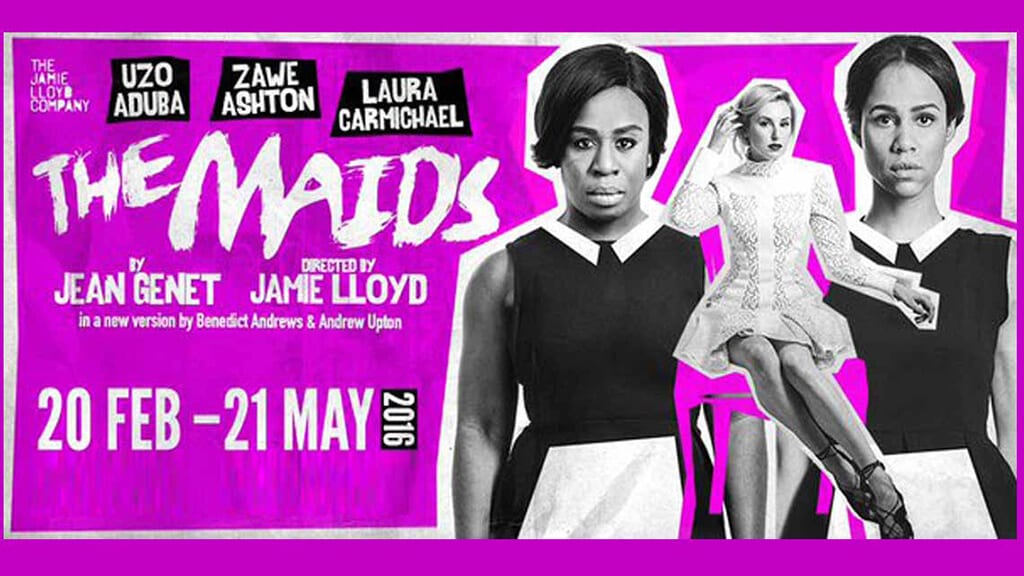The Jamie Lloyd Company may now be something of an institution in London’s theatre circles, famed for its gritty and gruesome productions (Richard III, The Hothouse, Macbeth), but this is definitely for good reason, as he never fails to deliver as a director. Lloyd’s revamping of Genet’s post-war snuff-fest is a triumph, perfectly conveying the original’s sense of inescapable suffocation in a modern adaptation.
The Maids observes two housemaid sisters, Solange and Claire, who construct elaborate sadomasochistic rituals together, enacting the role of “Madame” whilst she is away. At the centre of such role-play lies their dark intention: murder.
Genet’s original was inspired by the shocking reality of the Papin sisters’ murder of their mistress and her daughter in Le Mans in1933, that left the ruling classes falling off their antique chairs in anguish, vowing to thereafter lead wholesome lives with no servants. If only – but it did make them a little upset.
The play explores the inescapable imprisonment of domestic servitude, and the indignity that comes with that imprisonment. It is not about wages, or workers’ rights, or employer abuse, but the violence of the very concept of service itself. Genet takes pains to portray the mistress as a reasonable employer (if incredibly ignorant) with Claire robotically recanting, “mistress is kind, mistress is beautiful” to herself when contemplating her murder. But it is this ignorance and expectation of deference that Genet criticises. The maids, whilst well-fed and housed, are not free, and never will be as long as they are their mistress’ creation. They wouldn’t exist without her, and so they are not their own. This is the indignity of servitude.
The injustices of domestic service may seem “so 1933” to the modern Western eye, but in reality this is still a very current issue. An estimated 53 million people, mostly women, are employed in private households around the world, and amazingly, 10% of UK households currently employ some sort of domestic help.
Jamie Lloyd’s adaptation skilfully treats the maids’ frustrations as a modern issue. The decision to cast the immensely talented black actresses Uzo Aduba (Orange is the New Black) and Zawe Ashton (Fresh Meat) as Solange and Claire, exuberantly protesting in loud Southern American accents, screams of current racial tensions in America. Laura Carmichael’s nasal disdain for all things ‘kitchen’ also feels very Jewish-American Princess.
The lighting and staging of the production, imprisoning the actors within a gilded, rectangular cabinet, frequently strewn with flower petals or lit aggressively to mimic police lights, only added to the claustrophobia of the performance. At one point Ashton comically asked, “do you think anyone can see us?”, viewed by both sides of the audience, to remind us of the invasive, voyeuristic nature of observing subservients.
Jamie Lloyd’s production of The Maids perfectly distills the darkness of Genet’s work into a more modern and energetic update. Subtle shadows that were only hinted at in the original are amplified threefold, creating a much grittier play. Expletives, nudity and violence abound, as well as any possibility that Solange and Claire were nothing more than sisters being denied by a rather uncomfortable incestuous kiss. At the Trafalgar Studios, it seems, French existentialist theatre meets This is England.

